Malcolm de Chazal)
(This is a translation by Matilde Spall of the de Chazal Dictionary written by Tristan de Chazal)
10th generation. J64
Edgar de Chazal and Emma Kellman’s third child
Born on 12th September 1902 in Vacoas, Mauritius, Malcolm finished school in Mauritius, then obtained an engineering degree from Bâton-Rouge University, in the United States.
Upon his return to Mauritius, he gained employment on various sugar estates for ten years or so, then became a civil servant, working in the Department of Telecommunications until his retirement at 55.
Above all, he was a thinker, philosopher, write, and later, also a painter. He wrote wherever he was, in hotels where he spent a lot of time, on the beach where he also meditated or during long evenings of conversation.
Famously a bachelor and misogynist, the few women acknowledged as his friends had only played fleeting part in his life, and their role was more acolyte than counsellor. Of the 44 concepts which best indicate his theories, thoughts and actions, he put forward only four or five ideas about women. The following is the most characteristic and best encapsulates his attitude: “Bolt the back door to the heart: it is the highway to bewitchment”.
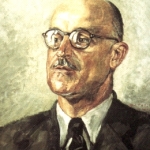
From 1932 to 1941, he wrote four papers on political economics, from 1940 to 1945, six anthologies of his “Pensées”. The “analogous” series contained Pensées VII and Sens Plastique published in 1945-46. The latter was reprinted by Gallimard; they also edited “La Vie Filtrée” in 1949. “Sens Magique”, “Apparadoxes” and “Poèmes” were published in 1957, 1958 and 1968 respectively.
During his mythico-biblical phase [1949-1956], about twenty volumes of between 40 and 500 pages were published, an enlightenment of his mythico-cosmogenic and theosophical teachings; from the Philosopher’s stone to the Absolute, via “Petrusmok”, “Le Livre de la Conscience”, etc.
From 1947, Jean Paulhan and André Breton recognised Malcolm de Chazal’s renown, whose thoughts and extracts of his books appeared in collections and anthologies of contemporary literature, both French and other languages. Some university faculties began to incorporate his output in their curricula; Canada, the Unites States, Madagascar…. In his book “Chazal of the Antipodes”, Camille de Rauville spoke of the Chazal Theatre as follows: –
“The Chazal Theatre cognomen range from “Jésou” [mystical play in 6 acts, 1950] and “Judas” [two versions written in 1953], to “Desmorantes” [a satirical drama in 5 acts, 1954] and the “Mythologie of Crève Cœur” [drama with illustrations]. In 1960, Yves Forget, his director, played “Judas” in Rose Hill, Mauritius, in an adaptation.
The Chazal plays, a model of overweening verbosity, attempt to illustrate his theories regarding the genesis of the cosmos or else illustrations of the 50s using literary and liturgical ceremonies celebrating the pontiff, the thunderstruck magus, moving from holocaust to transcendent triumph; the projection of the author himself in all incarnations of a writer [Les Désamorantes], prophet [Le Concile des Poètes], God’s own representative [Jésou], or even as traitor/victim self-immolating while accomplishing the ultimate sacrifice of being the saviour of the world [Judas]. His ideas are extended in “half-plays” such as “La Mythologie de Crève Cœur” [which mingles commentary, recitations and scenes of magical and erotic initiation taken from turgid mythology], all ideas, which flow through his works written in the 50s”.
Malcolm de Chazal died on 1st October 1981, in Curepipe, Mauritius. Here are extracts of a few articles that appeared in the papers in Mauritius and in Paris.
Le Mauricien, Friday, 2nd October, 1981:
“MALCOLM DE CHAZAL: MAURITIUS LOSES A FAMOUS SON”
He left a remarkable inheritance to literature and universal and Mauritian thought. With his death, Malcolm de Chazal bequeaths a huge amount of work [poetry, philosophy, theatre a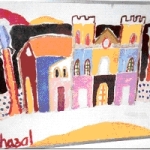 nd mystic thoughts] which are now included in the literary, mystical and theatrical curricula of some of the world’s best universities, including those of the United States of America. Malcolm de Chazal, who died yesterday at the age of 79, will remain in people’s memories as a poet, philosopher and mystic who, all his life, felt compelled to reveal to us the secrets of things animate and inanimate.
nd mystic thoughts] which are now included in the literary, mystical and theatrical curricula of some of the world’s best universities, including those of the United States of America. Malcolm de Chazal, who died yesterday at the age of 79, will remain in people’s memories as a poet, philosopher and mystic who, all his life, felt compelled to reveal to us the secrets of things animate and inanimate.
The whole of Mauritius should give him the honours he deserves. Malcolm de Chazal did not leave the island after his return over fifty years ago from University, at Bâton Rouge, in Louisiana. Once he wrote: “I am sure that I could never have produced my work anywhere other than in Mauritius. The island’s body and that of my soul are one. Mythology is essential to me because of such interchanges”.
He believed fervently that Mauritius had been the cradle of a great civilisation, a survivor of the Great Limurian Continent. He wrote in Petrusmok [1951] “Perhaps the people of some great lost civilisation lived on this very land, where today sugar cane spreads its green shade”. Petrusmok was a magisterial work which, still today, resonates in the literatur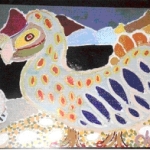 e and philosophy of the world.
e and philosophy of the world.
Malcolm de Chazal’s life seems more fascinating than a book title. Jean-Georges Prosper wrote in his “History of French Mauritian literature” [Ed. Océan Indien, Mauritius, 1978]:
“Born in 1902 in Vacoas, Malcolm de Chazal grew up at Mesnil-aux-Roses: ‘…in a very patriarchal world, one where there were fairies at the heart of the camphor wood forest, dappled clearings, freckled with gardens. He was enveloped in sacred pleasures from early childhood.’
At 16, he went to the United States. He spent five years at the University of Bâton-Rouge, in Louisiana. He returned to Mauritius with a diploma in sugar engineering and worked for a time in a sugar factory. He resigned to work in the Civil Service, at the Telephone Bureau. He retired in 1957, at 55, to devote his remaining years to literature, philosophy, and painting. According to Prosper, he transformed Mauritius into “Malcolmland”, a Mythical Island. In Petrusmok one of his famous works, Chazal wrote, “Mystery is rampant in every alleyway. The alchemy between heaven and earth is constant and continuous.”
Before publishing his literary and philosophical works, Malcolm de Chazal had written learned papers on economics. Prosper says, “he had determined to write much about political economics. He was very interested in calculus. From 1932 to 1941, he wrote four papers about economics. But his “sacred pleasures” soon overcame him and he devoted himself to new collections of ‘pensées’ after that time”. 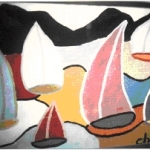
Prosper carries on: “Sense Plastique was the seventh volume, published around 1945, a huge tome taken up by Gallimard in Paris, in 1948. The following year, Gallimard edited “La Vie Filtrée”. From 1949 to 1956, his “mythico-biblical” period, over thirty books followed, including Petrusmok [1951], Le Livre de la Concience [1952], Les Dieux ou les Conciences-Univers [1954], plays including Iesou [sic] a mythical play in six acts [1950]; Judas [1953]; Les Désamorante , a satirical drama; and le Concile des Poètes, a prophetic play [1954]. Amongst his last published works, two important books appeared in 11954 – “L’Homme et la Connaissance”, edited in Paris by Jean-Jacques Pauvert and “Sens Unique”. Most of his work was published in Mauritius in limited editions, the cost being borne by the author.”
Malcolm de Chazal was the man who wrote the famous epigram: “This country [Mauritius] cultivates sugar cane and prejudice”. He wrote the most fantastic allegories: –
“Take me,
Naked
Said the flower
To the sun,
Before night
Closes
My thighs.”
His aphorisms are famous: –
“Laughter is the tolling bell of sex”.
“God is omnipotent except in suicide”.
“The drum is the most intimate of sexual sounds”.
“Sepals are the undergarments of flowers,
Remove them and the flower will look indecently bare”.
“Idiots bleat by their stare”.
“If snobs could be seen from the inside, they would look exactly like peasants”.
“Valleys are the brassieres of the wind”.
“A car will never catch up with the speed of the road”.
“The egg is all chin”.
“Water was frightened of getting wet and became fog”.
“The ring put a finger through its eye”.
It is said that Malcolm was a misogynist. He was a confirmed bachelor. Prosper quotes him on the subject of women with respect to me: – “Men wear their hearts in their genitalia, women wear their genitalia in their hearts”.
An article by André Legallant:
MALCOLM DE CHAZAL
Malcolm de Chazal entered our literature with a few collections of his thoughts. It was the prelude to a great symphony, encompassing feelings, perception and intuition. A symphony whose size soon overflowed our shores and reached those of France, whose verbal leitmotiv arose from the depths of his very soul and troubled that of his readers.
Art and Science.
No book after Sens Plastique, not even Sens Magique, took Malcolm to greater heights. At one time one thought that La Vie Filtrée would accomplish that miracle. Only Sens Plastique placed him near the great and the good. It gave him some of the gravitas needed, but Chazal never reached the Holy of Holies. His other books were nothing but self-indulgent attempts to achieve his dream. Only few have reached this moral and physical purity.
Since he was unable to reach any further, since verbs did not take him to the strange countries mentioned by Beaudelaire, he took another route, used a different vernacular – painting. His painting was not really paint on paper. Chazal went beyond the parameters of this art form because he wanted to use art to haul him to the summit. This union took him to his salvation. At least that is the impression I get when looking at his paintings. With some emotion when I wrote an article about him, he replied “The peaks cannot be jealous of each other, for here altitude is love “.
The Impenetrable Walls of Dreams
Sens Plastique was the trampoline from which he launched himself into the conquest of the infinite ideals. In vain, he looked for an answer from his interrogations of the mountain stone. Even the gospels of the water didn’t release its secrets. He hurled himself against the impenetrable walls of dreams, and returned disoriented, no longer confidant in the poetry of words. He was more philosopher than poet. Sully Prud’homme too tasted the same bitter failure. “I am weary of words, I am tired of hearing…”
But Sens Plastique was the zenith of his work. No, Chazal is not a painter. Will he one day produce a painting of exceptional talent, a sort of Sens Plastique in colour? Perhaps. Nevertheless, he is a poet par excellence. Having failed with word poetry, he tried the poetry of shapes and colours. More colour than shape. He does exactly what he does with words. The books succeeded one another at a phenomenal rate; similarly his paintings follow at an even greater rate. He goes after his dreams from an even greater height, the dream that gave him Sens Plastique. Even if he became successful at painting, he still followed a mirage. Yet he is one of these men who wouldn’t hesitate to rip out his heart if painting with blood was required.
What was he to do after this new failure? How was he to take another route to what seemed a dead-end? One would be forgiven that Chazal would leave the poetry of colours for that of sound.
The Route for a Glorious Ascension
Chazal took me at my word. One year later, in a letter to André Masson, editor of le Mauricien, he said, “It is thus, by its very nature that Sens Plastique emerged and overflowed into painting. And my painting cannot be an end in itself. It must emerge and overflow into music. And meta-music, once attained, is the return to poetry via the body and the curves of divine alliteration. The circle is complete….”
Sens Plastique in sound, if it ever sees the light of day, would be his third launch, third catapulting, to join the others already in place, on the way to a glorious ascension. Thus he will have used the poetry of words, that of colours, and now the poetry of sound, to reach the zenith of upward looking poetry.
If after Sens Plastique, Malcolm hadn’t lost his way, he could have achieved his dream. But his failure was not necessary, it could have taken him one day to create a trilogy in spatial poetry. His life was an unending striving towards the one goal. One which was close but never achieved. This was not from lack of trying but by the very nature of imponderables.
The Golden Gates of the Miraculous City
With these superimposed trampolines, he raised a crystal pillar between dreams and reality so that future artists are able to climb the cosmic ladder. Today Chazal is at the top of huge achievements in this new medium, meta-music, which will lead him to the absolute. Only then will all the golden gates of the miraculous city be opened to him.
André Legallant.
HOMMAGE TO MALCOLM DE CHAZAL
Malcolm de Chazal is no longer with us. Is this painful reality “real”? This is the question that comes to mind most often since the announcement of his death. Certainly, his body of work remains – when it comes to Malcolm, shouldn’t we call it THE GREAT WORK – and trust it will remain thus for years to come, increasing in importance with time and distance.
Other more qualified people have already made their exegeses of the author and painter. They found the right words, the appropriately weighty sentences to describe the work of the visionary/philosopher, of his breadth. Even better, they have been able to underline the outrageousness of the “man made word”!
My task today is made harder, no doubt futile, and possibly useless. However, there are times when every flesh-and-blood human being must not bow under what, at first sight, seems to be over his head! Therefore, in all honesty I shall be myself for what should be an homage, when facing the one who put Mauritian literature on the map.
Malcolm was at once a visionary poet, a philosopher, mystic, dramatist, and other, less palpable things, things on which one is not able to put one’s finger, no doubt more importantly, and most particularly, less worldly; he was, and still is a sort of COSMOS, firstly with Sens Plastique, and then with Petrusmok. He affirms the universality with, amongst others, the two important works – L’Homme et la Connaissance and Sens Unique.
I believe that it is precisely by the extensions in Cosmos, by the dislocation of one’s sense, by the unilateral instincts, that the philosophical poet reached an impasse in his means of expression. He was constantly measuring himself against the outrageous and unconditional…… man, searching for all that is greater than him, which overwhelms him. Then humour, even the Chazal humour, is insufficient. From then on, the aphorisms, the metaphors and allegories, enlarged and extended to the limit, are pitiful screens, behind which what should be ABSOLUTE, turns out to be merely headspinning!
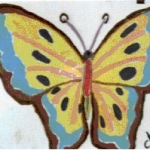
He found the man, crushed, everywhere! Finally, is that not our final destiny, for us all? Malcolm de Chazal knew it only too well, which is why he had a tendency to avoid us; we who were against our better selves, judging him; he who had seen the other side of the Universe; he who for a short time had perceived the other side of our surroundings.
Painting Writer?
Writing Painter?
Rimbaud, before Chazal, having written his masterpiece and become unable to go beyond it, became a gold prospector in Ethiopia. Malcolm, having reached the narrow edges of literature and philosophy, knew his limits only too well, and transformed himself into a painter. I am unable to judge the writer’s merit as an artist – for the moment at least, and without the benefit of hindsight. And it is not for fear of criticism or to shirk my responsibilities, that I say so. Besides, did Malcolm de Chazal honestly believed that he was a painter, in the true sense of the word? He who wrote the following “…And my paintings cannot be seen to be an end in themselves”.
Besides, in the end, wasn’t de Chazal more a “writer” of colours than he actually painted? Nevertheless, the fact remains that in the Chazalian vision, colour is not actually coloration, but an “astral state”, it is “personified order”; thus it becomes truly his “fairy colours” and, of course, rejoins the writer’s literary expression. It closes onto the writer and finally envelops him.
It is for future generations to re-open the book where the writing-painter, or the painting-writer, closed it himself… Will they be able to see the light?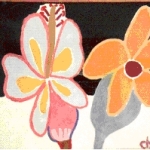
Reminiscences
In my opinion, this homage to Malcolm de Chazal would be incomplete if I didn’t talk about what I knew of My Friend, Malcolm. At the time, I was very young and very self-important. It all took place firstly at Meldrun Street, Curepipe -Road, and then later at the Rue Remono.
My brother Hervé, then an unknown painter, had the happy idea every Sunday of inviting influential guests. These were his “Sundays” and we discussed everything from art, literature, philosophical issues, music, and goodness knows what else. It was thus that established authors met others who were less well known, but who brought with them a whiff of notoriety. It was there, at Hervé’s that I met Raymonde de Ker Vern, Edmée Le Breton, Malcolm de Chazal, more rarely Robert Edward Hart, Roger Lemaire (who had a wonderful voice), and one Stoyadinovitch (deposed prime minister of some Balkan country, who was under house arrest in Mauritius).
We had a ritual cinema show on these Sundays, and then we all met to discuss and exchange ideas, often to squabble too. It was rather like the famous “quatre jeudis” of old and was most agreeable. It was on such Sundays that I got to know Malcolm de Chazal much better. And yet, he was not an easy man to get to know [already!]; I had nevertheless the advantage of being young and malleable; Malcolm understood this and quickly adopted me. During the five years (from 1948 to 1953) I was a friend of sorts, sometimes a confidant. At that time, Gallimard had just taken back Sens Plastique onto his books and it was reprinted in France. Malcolm de Chazal became thus an important figure in his own country! He could defy the critics!
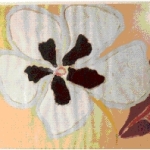 Certainly, on these Sundays, we would evoke Louis Jouvet as often as André Gide or sometimes…! Loys Masson, exiled in some far country… And I still remember very clearly, as if it happened yesterday, with his usual consummate timing Malcolm made the following pronouncement, “My dear friend, it is not possible to have two geniuses on one island. As I am one…. Then, your brother…?” followed by gales of laughter. Malcolm de Chazal knew how to make a joke, the man was like a boomerang!
Certainly, on these Sundays, we would evoke Louis Jouvet as often as André Gide or sometimes…! Loys Masson, exiled in some far country… And I still remember very clearly, as if it happened yesterday, with his usual consummate timing Malcolm made the following pronouncement, “My dear friend, it is not possible to have two geniuses on one island. As I am one…. Then, your brother…?” followed by gales of laughter. Malcolm de Chazal knew how to make a joke, the man was like a boomerang!
Another day he confided in me, “You will only be yourself once you have understood me completely, then everything will be clear in your mind…” That was Malcolm at his best! But he was without malice and I believe that through me, Malcolm was looking for another “self”, one which was already showing itself via his powerful pen.
And time passed. In 1953, I left for Australia (Malcolm would no doubt have called it the Lemur paradise of Austral – Asia) where I stayed for a considerable time before moving to France. When, I returned home in 1965, much water had flowed under the bridge. Inevitably, and finally I found myself face-to-face with Malcolm. He was immovable!
Malcolm having passed through the fiery furnace, was, somehow, beginning his years in the wilderness. he would say These intrinsic wilderness years were magical, fairylike. I must say that I know what he went through. Some silences are more eloquent than words. Some attitudes and heights of passion are self explanatory.
Malcolm knew about the, I did too.
Transcending these words are my friendship and deep understanding. And especially my admiration!
Lucien Masson.
__________________________________
Mauritian Literature and Art in Mourning
MALCOLM DE CHAZAL IS NO MORE
Malcolm de Chazal grew up at Mésnil-aux-Roses, in a “patriarchal society and large estate, a fairy land in the camphor forest”, he was a writer, painter and chronicler, and was put to rest yesterday afternoon in Phoenix cemetery in the shade of a camphor tree.
Malcolm de Chazal, who was 79 years old, died on Thursday afternoon in a house in Curepipe where, a close relative told the Express newspaper, he had recently retired to “lead a more ascetic life in order to retain his freedom as poet and philosopher”.
The funeral of this “metaphysical poet, candid painter” took place yesterday afternoon in the greatest intimacy at the church of the New Jerusalem in Curepipe. His close relations were all gathered in the small church. Father Henri Souchon and the pastor Jean Baissac led the ceremony.
In the sermon, Father Souchon talked about the encounter he had had with Malcolm the previous Monday. He talked lengthily of the deceased’s bible, which was heavily annotated in his own had, it was his way of meeting God, the god of poetry, of painting and literature. He alluded to the deceased’s favourite passages, in the Holy Scriptures, particularly those in the Apocalypse according to St. John the Evangelist. For Father Souchon, the annotations in black, red and blue added to his exploration on the plastic level.
Father Souchon thus explained the motifs and colours of the stole he was wearing for the poet’s funeral, “This Mauritian star together with Venus, the Southern Cross and the Milky Way, all of stellar dust, could symbolise the place where the poet will meet his Lord, the God of great hope, where Malcolm will meet the fairyland, the bird on his Fairy-Flower, which was his kingdom.”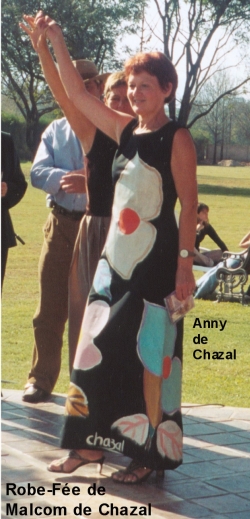
Pastor Baissac, on his part, recalled the relationship between the de Chazal brothers. He said that, since early childhood, Malcolm had had this individualist attitude, the characteristic egocentricity of exceptional beings. He also emphasised the independence which was characteristic of the man. Pastor Baissac recalled a comment made by Malcolm de Chazal when there were radio broadcasts of his recent book, “Sens Plastique”. “I do not write in French, I write my French,” retorted Malcolm de Chazal in reply to panning by the critics. Pastor Baissac read an extract of Malcolm de Chazal’s last work, “Man and Knowledge” in which the author demonstrated his disposition to independent thought vis-à-vis God. In his view “God could not exist without man and man without God”.
Many of the friends and family of the deceased, many of them from the Judiciary, the Ministry of Education and Culture, Sir Kher Jagatsingh and a representative of the French Embassy, M. J.L. Rondreux, attended the funeral.
The burial took place at Phoenix cemetery. There the roots of a camphor tree welcomed the remains of a Great Man, a man who will have indelibly marked his country by stretching the limits of literature during his life on earth.
M. YVES RAVAT: “A GENIUS WHO ENJOYED PLAYING THE FOOL”
M. Yves Ravat, a journalist and novelist, talked to us about the man, of the poet and friend that Malcolm de Chazal had shown himself to be:
“It is said that eagles go into hiding before dying. For a long time now Malcolm was no longer seen. The announcement of his death did not surprise me. I was expecting it. When he made it known that he no longer wanted to see anyone, not even his colleagues, I guessed that the end was near. I refuse to believe that he retired from worldly things for self-mortification. It has been said that he was conceited. Of course, he was egocentric. It could be said then that egocentricity is a form of conceit. It is more likely to be a type of lucidity, of rationality. Like all great poets, he lived an inner life.
What picture of himself did he leave to his literary friends? He was a clear thinker who liked to be thought deranged. Malcolm de Chazal leaves publications testifying to his poetic genius, glorifying his Mauritius. Paulhan maintained he was a man of great intellectual discipline, acutely intelligent. Is that not enough?
The best memory I have of Malcolm is when he used to visit Le Mauricien, which he used to describe as “the last of the salons”. Indeed, we used to talk about everything: literature, philosophy, and metaphysics… But Malcolm professed that the way to salvation was through poetry.
Many things need to be said about Malcolm de Chazal’s genius and I hope I shall be able to say most of them at a public meeting.
Was he a believer? One day at Le Mauricien, when we were discussing the existence of God, one of us, playing Devil’s Advocate, asked, “How can there be a God, who is not self-sufficient? God, plus the world, what does that mean?” Malcolm de Chazal thought for a long time then replied, “The world minus God, what does that mean?”
___________________________
…until his death bed, he was forever quoting one of his most cherished aphorisms, “I have cultivated the DE CHAZAL moutouc and managed to make of it a boa constrictor.”
_____________________________
Le Monde, 4-5th October 1981:
MALCOLM de CHAZAL
The author and painter Malcolm de Chazal died on Thursday, 1st October, in Mauritius. He was seventy-nine years old.
A Lyrical Visionary
In 1948, while literature was still dedicated to the conscience, the psychology and consequences of Liberation, when to general surprise, two of Malcolm de Chazal’s seminal works Sens Plastique and La Vie Filtrée were published by Jean Paulhan at the Nouvelle Revue francaise. Pages were carefully selected from, one has to admit, extremely indigestible prose and presented in a variety of pamphlets and booklets. They offered aphorisms and blazing bons mots which made one wonder whether they were completely absurd or were better suited to his magical tropical dreams. The Mauritian philosopher is hilarious, using pithy phrases which both Lautréamont and Alphonse Allais admired:
“Roses are the sun’s milk teeth ”;
“Without shadows, light would not be able to jump over obstacles, and the sun would have to go everywhere on foot”;
“There is the North Pole of words; over there the South Pole; and here is the equator”;
“Comets are the visible cancers of space”;
“Language is a deviation towards expression”.
Could anyone, at that moment, honestly consider Malcolm de Chazal a serious thinker or should one take him for an irresistible word-terrorist? His reasoning often gave way to formulaic punch-lines, just as his enormous charm shored up a sort of sensuality disguised with surrealist imagery.
The slide to pedantry and cosmic vision did not fail to materialise. In his works of the 50s and 60s, which were no longer printed in France – Petrusmok, of which 400 copies were printed in Port Louis, in 1951, is the longest and most convincing example – his ambition knew no bounds. Moving from astrologer, to archaeologist and theosophist, Malcolm de Chazal refused to leave his island, encompasses the sum of human knowledge which he bends to a singular prophetic geometry. Did the oracle listen to himself? It would seem that, denser than ever, the visionary poet bent under the weight of too many unknowns. By wanting to prove everything, he lost the power of words.
In 1957, in Sens Magique – published in Tananarive – and some of his short poems in 1968 (Editions Jean Jacques Pauver) that Malcolm de Chazal once more found some pertinence, some humour and his originality. But now we have to do with a smiling, sober philosopher, who remembers his charming gems from a quarter century ago:
“He who undresses
Night
Will find
The Body of God”.
“Every object
When it
Falls,
Denounces itself.
It is worth revisiting his first books; they are wonderfully fierce and lyrical.
Alain Bousquet.
_____________________________
Le Figaro 11th October 1981
MALCOLM de CHAZAL – the antipodean poet – IS NO MORE
On 11th October 1947, Jean Paulhan made a sensational announcement to the readers of “Figaro littéraire”; he had discovered a genius, and this genius was called Malcolm de Chazal.
Soon after, in the N.R.F., there appeared a collection of works – Sens Plastique – by this unusual antipodean poet; he lived in Mauritius. Today this work is in most of the anthologies.
After disappearing from view for sometime, Malcolm de Chazal has recently died at the age of seventy-nine, in Mauritius. On the island, for the last thirty years or more, not only did the local publisher continue to print his work; but he also painted innumerable gouache painting. There are few public buildings in Mauritius which do not display, in pride of place, examples of his raw shapes and the sunny colours of his palette.
The poet was a descendant of an old Forez family. His ancestor arrived in Mauritius to found a colonial dynasty, after having married a first cousin of Charlotte Corday, he settles near Pamplemousse where there is one of the most beautiful gardens in the world. Malcolm, as he was known in Curepipe and Port-Louis, was first a chemical engineer; and the discipline of his scientific training did not stop him from listening to local folklore. During the last years of his life, his sense of humour and mischievousness curiously increased and was perhaps deranged.
He was heard to quote sagely, that “Poetry is the simultaneous product of imagination and the unconscious, discipline and a sense of adventure”.
Then he would declare in all seriousness that Martians all have blue eyes.
Nevertheless, this great French-speaking poet often found delightful phrases and littered his works with them.
Malcolm de Chazal who frightened and enslaved his compatriots with his cutting declarations, was often found in his bow tie and trilby, cutting a curious figure, sauntering along the beach under the filao trees. Then he would lock himself in a hotel room to write or paint on his hands and knees. Not far off, on the slope of the Morne Mountain, monkeys frolicked in the ebony trees.
Jean Prasteau.
_______________________________________
La Croix, Tuesday 29th December 1981
MALCOLM de CHAZAL: THE INSULAR MYSTIC
Soliloquising on the coral beaches of Mauritius, Chazal had the prescience not to commercialise his visions.
Those who may have seen him only once on the terrace of the Morne, will remember that big hotel, that white landmark of the French occupation of the island, with Malcolm negligently smoking and drinking whiskey, at his back the acres of sugar cane, his blue eyes lost in the metaphysical depths of the Indian Ocean, his hand on a piece of paper where an occasion aphorism, these painful cramps of the soul, would magically flutter. Those who, bathes in Mauritian myths, in Curepipe, Trou-d’Eau-Douce, Chamarel, those won’t forget the solitary shadow a true mystic, Malcolm de Chazal, a voluntary hermit who came forward to see the joining of Orient and West.
Madder than the Surrealists
He refused everything. This included the Parisian patronage of Breton, Ponge and Paulhan who wanted to make him one of them, by the demands and conformity of their madness. But Chazal, madder than the surrealists, slammed the proverbial door in their faces, during one of his very rare visits to France. In consequence, he was held back, his works were mostly published in Mauritius. He refused to meet any of his disciples, be they Chinese, Islamic, Indo-Mauritians, European. He cut himself off from the benevolent esteem of the white Mauritians for whom, until his death , he remained dangerously allied to the mosaic of ethnic groups of the island. A sort of intellectually ecumenical P. Laval, his languages multiplied as fast as those of the apostles at Pentecost. Yet, communication with him was difficult: if he addressed any one, he would then take him along some sandy shore and expound his partiality for colours. Sens Plastique, one of his works to be found in France and one of the shortest, was also called “the book of colours”: it is about white magicians who, when they left Atlantis for Egypt, took with them their book of colours containing all their arcane knowledge. In his dreams, Chazal finds volcanic powders in rainbow colours that cover part of Mauritius and wrote one of the most beautiful treatises of spontaneous mystery.
Humble Creatures
Chazal had the strength of mind, but was wrong, not to market his visions: Sens Plastique was born in the Curepipe Botanical Gardens where he saw an azalea flower for the first time: “I became the flower while remaining myself.” Sartre made a fortune from a root in the Luxembourg Gardens. Chazal remained humble amidst such creatures. He was rather like Rimbaud, he went to America aged 16, to study sugar technology; he was an immigrant Chateaubriand. Once he got his Bachelor degree, he returned, re-converted to the insularity of the island by joining the Telephone services (he used to spend hours reading his poetry to his colleagues in the office); he was a great painter with regards to his poetry which made him like Hugo (Senghor exhibited his painting ins Senegal); a little like Pascal, he was more interested in integrated calculus and economics than in the literary coterie; he turned towards human thought and expression; brushing by Beaudelaire’s allegories; he was a visitor to Mauritius like the Chazal hero, Petrusmok; an excellent comic and more-than-Christian fable-writer; de Chazal’s God, if there is one, is a God of instant and utter knowledge.
Chazal invented nothing. He only wanted to re-write the Bible using black magic; to re-write the history of his country giving it poetry as dowry; to re-allocate the physical attributes of his ancestral lands bequeathing it a cosmic soul.
A visionary Genius
Abelio was right when he said of him that one was “in the presence of a visionary genius, the stillness of gnosis”. This visionary was also the scamp from my literature classes. With him, during one of those interminable telephone conversations, I crossed oceans. He spoke of my country with words used by the landless. This heavenly conversation has now been forever interrupted. I shall return to the Hotel du Morne finish my abandoned drink which, for a day, gave me the taste for generous measures and strong spirits.
Olivier Poivre d’Arvor
Co-ordinator, Editions Hallier-Albin Michel
__________________________________________
In the week from Thursday 21st to Wednesday 27th October 1982
Discovered in his far-flung island of Mauritius by Jean Paulhan and André Breton, Malcolm de Chazal died a year ago, to general indifference. In 1947, this mystical poet had written to Jean-Paul Sartre an open letter, which has remained unanswered to this day.
OPEN LETTER TO JEAN-PAUL SARTRE. An unedited composition by Malcolm de Chazal.
A fundamental abyss separates us; the breadth of our knowledge keeps our two minds poles apart: yours is pointed towards Chaos and mine towards God. From my side of this abyss, your spirit is dying in nothingness; your intelligence peaks as it try to reach the apogee of all things. You spread your life out and dilute your perception while you try to embrace all knowledge by living completely. You lose knowledge with each step towards Complete Knowledge: all perception leaves you at this stage and you lose yourself in the purity and mathematical elegance of words.
As for me, I am diametrically opposite and my life is so telescoped that I am hurtling headlong toward the All and the One – the supreme, dying spasms of the Soul. The chasm between us exists because I progress by compressing the already telescoped, towards infinity, whilst you, on your part, seek to analyse the infinite, breaking up life and subdividing it further so as to lose yourself in the Void. Our trains of thought are thus the antithesis of each other. This is why our souls will eventually make a fatal encounter.
You, yourself, Sartre, are you not at least the one thing on earth that you love most, in the spiritual sense of the word? Yet, project this love onto the universal plane and you will find God.
God is no more than that: the Immanence of love hovering over all earthly concepts, and floods our being with infinity and gives us the taste of immortality.
You frequently reiterate that you find all this profoundly boring, that for you, “alone” is something that all the tactile senses of the soul have captured – the rest being nothing – nothing except your intelligence, in its own immanence, which is repelled like an illusion. And, like a child, you try to capture the burst of light in your hands, the brightness with your fingers; and because your hands and your fingers can capture nothing but empty air, you say to yourself that this is because it is nothing, and assume that such vital things are but hollow hallucinations.
Would you be able to become addicted dreaming, and trample down illusory substance! If the spirit is all, how much more substantial then are the things that touch internally, those things to which our physical senses attach themselves but inevitably transmute into other things. Our physical sense which to the human eye, alas, in the same unreal lives, clutch, in those endless pile-ups, at the vague lines of light, like balls leaving tracer trails of unsubstantial light. Me, I would like these balls to be in motion, to be moving at lightning speed; and to do so, I use my spiritual eyes as yardsticks, as perpetual tally, slowing down and speeding up motion.
Your use of spiritual sight is to view the external – intellectually pure sight, which only films the outside. I use my spiritual life, close temporal shutters to the world around me, so as to find my internal world – I integrate the outside world with my brain cells, by this very integration pass from the profound essence of things and see them from inside out. You have centrifugal force and I have centripetal.
My method of thought leads me to feel for the centre of the Universe – and this is when I feel God’s presence, while you simply move from argument to argument. You travel the world; I stay in one place and bring the world to me, I try to visit the Infinite within my soul, by stopping my internal merry-go-round, at the sunset on the stage of the living world to better see the light Beyond within me.
You are of the Cipher; I am of the Number. You spread yourself around; I make an entirety of my self – flesh, mind, spirit, and soul – to meet Infinity. Your run panting towards Knowledge, trying to catch it up at end bend in the chase; and, in this chase, your ideas get mislaid and you never return to their origins, and in this game, you get further and further away from your true self, and your spirit becomes duller with analysis, as a gaze becomes blind by trying to see too much – the eye looks inwardly and sees all the skies as a flower – only one ray of light is enough to fill an immense sky, and a drop of water seen close up conceals huge oceans. This is my method.
And, I reiterate, you seem to butcher life and are within a scattering of analysis.
Although our paths are antithetic, I concede your one great merit: you have done more and pushed the limits of thought further than anyone before you. On the plane of pure thought, Descartes is not fit to untie your laces. And, when compared to your intellectual galloping, past rationalist philosophers were like heavy carthorses coupled to mediaeval carts. But to my mind, at no time has reason taken man to life itself.
Therefore, your frantic creative efforts do not confer you any help. Reason crawls while intuition flies. The first stops at the cliff-edge of Being – where, to enter consciousness, it would have been necessary to make a leap to the Universal Plan – to be beyond mankind from one’s intuition and resultant thought. Yet, you would collapse at the very door of Life itself. Since reason walks or runs, but does not fly, and only intuition gives wings to the spirit – perception increases out of proportion, and the gifts of divination and prophesy later goes beyond the land of Man to a superhuman kingdom, where everything has increased to the size of the supreme being; one must be able to retain one’s breath in the presence of the Divine.
All this probably means very little to you. Your measures are not mine; one does not weigh air with the same set of scales as one weighs water, and there are no common denominators in antitheses. If one tries to explain black in white terms, it is impossible not to use negative terms and retreat spiritually further and further in the belief that one is reaching a point of contact. Therefore, we shall never be able to meet, and we should see ourselves moving from place to place like curious animals, making the space between us laugh; like an unpartisan crowd merrily watching two people hurling invective at each other.
The “laughing space”, this is the immanence of indestructible matter. Whether two men quarrel on its behalf or not, it will carry on implacably despite us, leaving us like muezzins calling out into the emptiness, calling to a God in order to separate space and mankind, and place the infinite in the finite.
There are a thousand ways to the Supreme Being, and only one is barred and locked forever and it is the way of Reason, with its parched eye and incredulous smile. What I abominate in existentialism is its prejudiced FAITHLESSNESS – like Columbus sailing away, but the breath of desperation blowing in his sails. Despair gives impulse to the Great Seekers who use it like the following wind of their thoughts. But despair, the despair that you use, Oh Sartre, is the head wind of intelligence. All your gestures beat off emptiness and the last cry is, when the body faces the abortive fight, ‘Nothing’.
The philosophy of void leads to cerebral impotence. Therefore, these existentialist theses are sillier and sillier, from beginning to end; the mind having exhausted itself at the very time that the writer believes he has reached his goal – as masturbation leads to weakness of the mind, these conclusions come from cerebral habit, the body of the mind being now non-existent. In your case, Saturn has consumed his offspring, the involution has shrunk the departure point of your thoughts, and the end spits on the exegesis, like the slippery, sly glances of liars.
If existentialism ever creates wounds in the French mind, it is because the French, reasoning too much, will have deserved it. Moreover, Oh Sartre, only France could have given birth to you and brought you up as she has.
You are the over-intellectual flowering of an over-evolved country. All over-evolution, including that of the intellect, falls fatally into abstraction. I pray that you are the outer limit of the supreme danger affecting the spirit devouring a nation which, with a God-given gift for extensive cogitation, has grossly abused it. It has gone too far without strengthening and expanding its thoughts has spread itself to thinly, in response to worldly pride and didn’t notice that its intelligence was lacking.
For a little brio, France has sacrificed the deepest philosophical substance; sacrificed the wing beats of intuition to the fictitious sparking of intellectual victory, the very intellect so pure that it doesn’t know how to play bilboquet with the subtle nuances of words. Sartre, you are the absolute incarnation of an epoch.
I am rude to you because you are the most intelligent man in France today, and intelligence, such as is incarnate in you and is conceived by you, becomes anaemic and wilts from hypertrophy – for everything is like a mental game of see-saw – the accumulation of sensitivity without which Man no longer has visceral pleasures and life is as without salt. The world alters, becomes like a house of cards and sight examines solely mathematical shapes; immutable, solidified shapes.
I do not fight you, Oh Sartre, I label you. I name you. I inscribe “Danger” in front of your name. I reveal your trap and proceed, leaving a red light in front of it. I do not have the power to bar your way; French thought would have to change for that to happen, a change of all modern thought.
I hand over the cup to those who ask me for it and but shall react only against those who would try to snatch it from my hands. Existentialism will only start to be my enemy the day it would snatch from me. “The School” whatever it may be, leaves me cold. I am above such schools and do not seek to create a new school. Of itself, the school is a sign that truth is cloistered, enclosed. The strength of my message is that it is cosmogenic.
(Paulhan Archives)
Bibliography
Historique de notre change et de notre délégation à Londres 1932
Une synthèse objective de la crise actuelle 1935
Nouvel essai d’économie politique 1935
Laboratoire central de contrôle 1941
Pensées I 1940
Pensées II 1942
Pensées III 1942
Pensées IV 1943
Pensées V 1944
Pensées VI 1944
Pensées VII 1945 L’Ether Vague 1986
Sens-Plastique 1945 L’Ether Vague 1986
Histoire de la pensée universelle 1946
Sens-Plastique II 1947 Gallimard 1948, 1985
La Vie filtrée Gallimard 1949
Iésou 1950
La Pierre philosophale 1950
L’Ame de la musique 1950
Petrusmok 1951 La Table Ovale 1979
La Clef du Cosmos 1951 L’Ether Vague 1994
Mythologie de Crève-Coeur 1951
Le Rocher de Sisyphe 1951
Aggenèse I 1951
Manifeste 1951
Aggenèse II 1951
Révélation de la nuit 1951
La Bible du mal 1952
La Fin du monde 1952
La grande révélation 1952
La Science immortelle 1952
Le Livre de conscience 1952 Arma Artis sans date
Le Livre des principes 1952
Le Livre d’or 1952
L’Evangile de l’eau 1952
Le Roi du monde 1952
Le Pape et la science et la révélation de l’angélisme 1952
Manifeste III 1953
Préambule à l’absolu 1953
Pentateuque 1953
L’Absolu 1953
Judas 1953
Judas ou la trahison du prêtre 1953
Les Désamorantes, suivi de Le Concile des poètes 1954
Les deux infinis 1954
L’Espace ou Satan 1954
Les Dieux ou les consciences-univers 1954
Le Sens de l’absolu 1956
Sens-Magique 1957, 1958 Lachenal et Ritter 1983
Apparadoxes 1958
Les Courses à l’île Maurice 1962
Poèmes Jean-Jacques Pauvert 1968
L’île Maurice proto-histoire Guillemette de Spéville 1973
L’Homme et la Connaissance Jean-Jacques Pauvert 1974
Sens unique 1974 L’Ether Vaguen 1985
La Bouche ne s’endort jamais Saint-Germain-des-Prés 1976 L’Ether Vague 1994
Livres d’éditeurs :
Ma Révolution, lettre à Alexandrian Le Temps qu’il fait 1983
La Vie derrière les choses La Différence 1985
Correspondances avec Jean Paulhan L’Ether Vague 1987

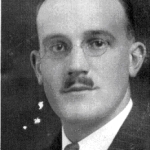
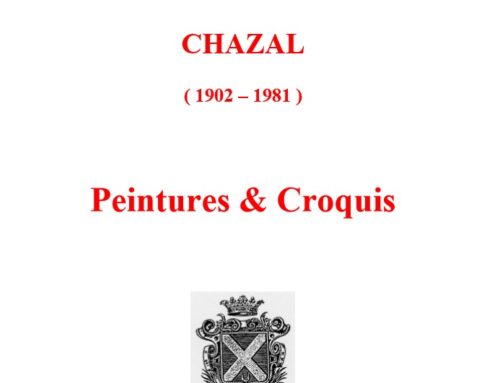
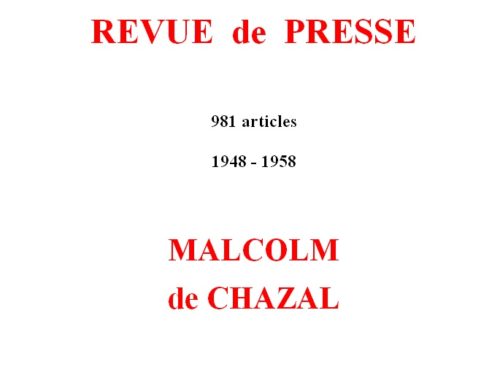
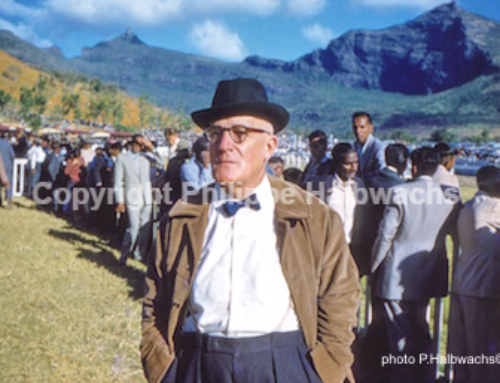
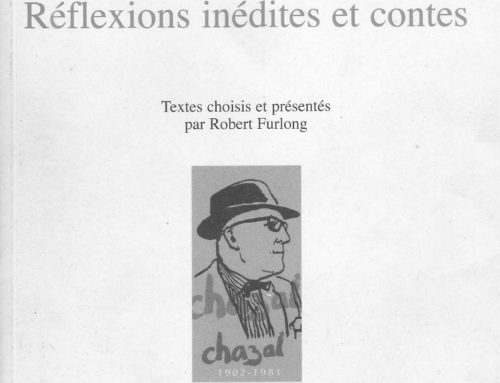
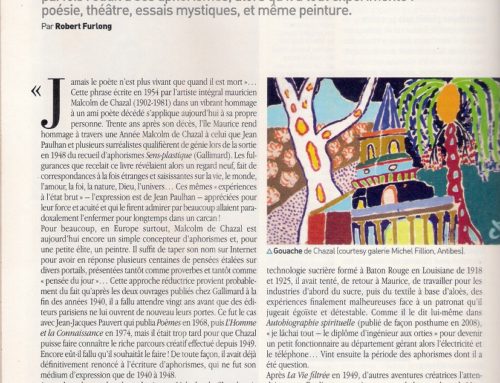
Leave A Comment
You must be logged in to post a comment.